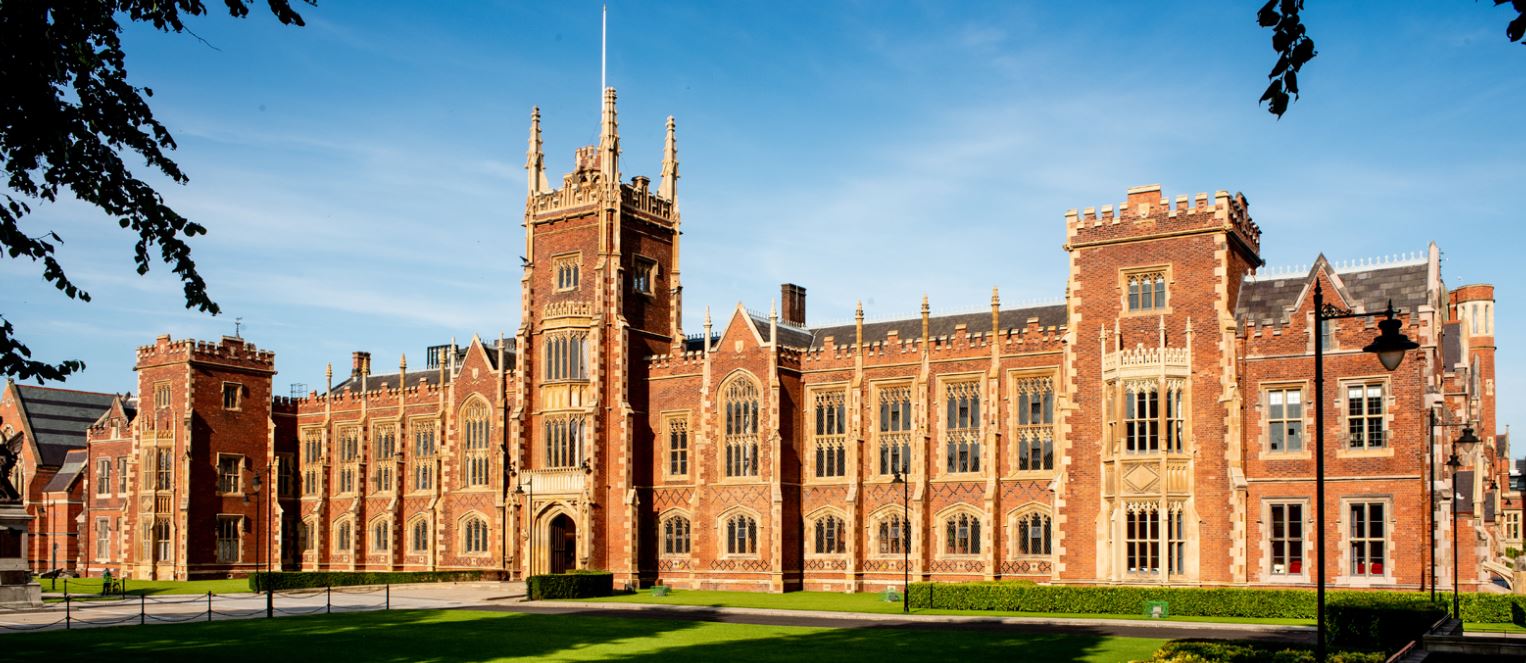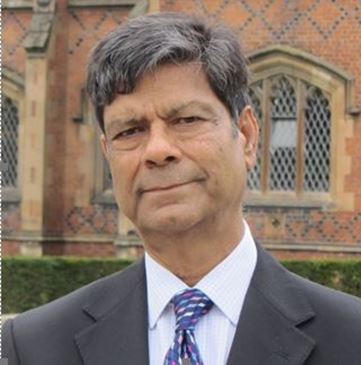
So you know that Queen’s is a top university, but have you ever wondered exactly how QS, Times Higher Education, The Guardian University Guide and others come up with their magic numbers? The answer may well surprise you.
Seeing Queen’s well placed in university rankings is an important endorsement of the quality of our education and research. Furthermore, knowing that your degree is well-regarded on the global stage definitely gives you confidence that you have an edge in the job market. But did you know that rankings can have a direct impact on the University’s long-term success – and that you could be asked to take part?
Both domestic and international students use rankings to help them choose Queen’s, so they help ensure that we have a richly diverse population on campus and across our wider community. They are also linked to our long-term sustainability, impacting Queen’s reputation and its ability to attract research funding, industry collaborations, and global talent.
So how do they work? As Professor Margaret Topping, Pro-Vice-Chancellor for Internationalisation, explains: “the Times Higher Education and the QS World University Rankings look at factors such as our reputation in research and teaching, the diversity of our staff and student population, our international PhD researchers, and the international outlook of our staff. They also measure whether we’re doing a good job of ensuring our graduates are ‘future ready’. And one of the key ways that they capture all of this is through seeking opinions from alumni, employers and academics.”
What do Queen’s staff, alumni and employers really think of Queen’s? We asked them.
Professor Margaret Topping, Pro-Vice-Chancellor for Internationalisation says that research impact is vital.
Queen’s is part of the Russell Group, the top 24 research-intensive universities in the UK, and the Times Higher Education Impact Rankings rates us 43rd in the world. But what makes us really stand out, I think, is our very strong commitment to research with real and measurable impact.
So, while we do, of course, carry out world-class ‘blue sky’ research that redefines disciplines, we also want to come up with solutions that will have practical application, whether that’s a ground-breaking vaccine delivery system, a new model for community relations or a pioneering method of monitoring food safety. That’s why we’re deeply focused on collaboration across countries, sectors and disciplines, and why we work closely with industry, with the creative and cultural sectors, and with policymakers.
Queen’s incredible, agile response to the pandemic, for example, has brought together researchers not only from Medicine, Health and Life Sciences, but also from Engineering, Education, Law, Management, the Creative Arts, and Philosophy. Now that vaccines are available, we are increasingly thinking about: how we start to recover from the pandemic as a society; and how we think differently about our educational system, our creative and cultural sector, and about our local, national and international economic recovery. No global challenge is going to be addressed by one discipline.
We’re proud of the ranking achieved by many of our subject areas: Queen’s currently has 10 subjects ranked in the QS top 200 globally, including three in the top 100: Pharmacy at 79, English at 94, and Nursing 51. The Times Higher Education World Rankings 2022 puts Queen’s at 17th in the world for international outlook, and we have a further six subjects in that top 200; Law, Arts and Humanities, Computer Science, Engineering, Physical Science, and Psychology. And we hope that our alumni and friends share that pride too. It’s good to feel that, wherever you are in the world, your university ranks alongside some of the world’s top institutions. We might be from a small, regional city, but we can punch well above our weight.
Queen’s alumni may have been invited to participate in the QS Intelligence Unit rankings. If you agreed to participate and subsequently receive an email from rankings@qs.com between February and May 2022 you can assume this is legitimate. You may wish to this add this to your safe senders or contacts list, and check your spam. To find out more about research at Queen’s, click here.
Do employers rate Queen’s graduates? That’s one of the objectives the QS ranking seeks to find out.
Claire Brennan, Talent Partner, FinTrU reveals what it is really like to hire Queen’s people.

Our Queen’s graduates come from a range of disciplines, from Law and Finance to the Arts and Humanities – and even from Dentistry. They all bring something different and valuable to the business; in fact, some of our investment bank clients particularly like the slant an Arts background brings. But whatever their degree, they’ve all got one thing in common: drive and ambition. As a start-up, that’s been so important to us.
Eagerness to learn is key in our industry, with new rules and regulations coming in all the time, and we find that that is something Queen’s graduates really get. We need people with transferable and technical skills who can read around a subject and quickly get on top of a new area. I think Queen’s helps to hone those skills through coursework and research-based courses – and it was why we wanted to get involved with helping to provide an industry-specific environment such as the FinTrU Trading Room at Queen’s, which replicates New York and London trading environments.
The way Queen’s coursework is set up, and the range of group exercises and teamwork that students do, is really noticeable. Queen’s graduates are normally very aware of their own strengths and weaknesses, and can speak about how they’ve worked in teams throughout university, as well as discussing relevant case-study work. And they perform very well at interview: they’ve always researched the company thoroughly and have clearly had in-depth interview skills and CV training.
We also notice that Queen’s graduates have a multitude of transferable skills from extra-curricular activities. That is admirable: it’s not easy to do a full-time course and be heavily involved with a sports team or society. But this involvement gives them strong work ethic, teamwork and leadership skills. We see it come through a lot in their answers to competency-based questions at interview, and when new graduates start work in our teams and contribute to our company societies and culture. It’s amazing to see, for example, how quickly graduates who have been involved in mooting or debating societies get up to speed with negotiating contracts. Queen’s graduates are a big part of our growing business and have played a major role in FinTrU’s success.
Queen’s alumni may have been invited to participate in the QS Intelligence Unit rankings. If you agreed to participate and subsequently receive an email from rankings@qs.com between February and May 2022 you can assume this is legitimate. You may wish to this add this to your safe senders or contacts list, and check your spam. To find out more about research at Queen’s, click here.
The information from QS rankings often shapes international student perception when making university application decisions. So what do international students really think of Queen’s over the long-term?
We asked Binod Maitin (Analytical Chemistry PhD, 1982).

My path to Queen’s started in India, back in 1978. I already had a Master’s degree, but I wanted to progress further. I researched various universities and found that Queen’s was world-leading in the field and one of the first universities to have a Chair in Analytical Chemistry. The Chair was held by Professor Duncan Thorburn Burns, now Professor Emeritus at Queen’s and recipient of numerous academic awards, including the 2018 Royal Society of Chemistry Anne Bennett Memorial Award.
I felt welcome even before I arrived – vital when you are coming from another country. I threw myself into my research and enjoyed every moment of it. I studied a challenging analytical problem and got excellent guidance from all my tutors. Professor Burns arranged for me to teach, which helped to cover my financial costs. In fact, all the staff were very helpful, whether they were teaching or administrative.
Queen’s combines excellence in research and education, while also being very student-centred. I worked hard, but I also had an excellent social life. It’s big enough that you can always find ‘your people’. Everyone was very friendly: I enjoyed many picnics, scenic tours and dinners, and I joined the Indian Society. I loved walking through Botanic Gardens for relaxation, and walking and sitting around the beautiful and historic Quadrangle of the Lanyon Building. Belfast was – and still is – such a welcoming city. People I had never met would say hello when I was just walking down the street. It’s so normal for people to say: “Why don’t you come for a meal?”
Once I returned to India, my PhD from Queen’s opened up many opportunities. It’s a very well-respected degree and I was immediately offered a good job. I went on to have a rewarding career in chemistry, spanning the academic and corporate worlds. I spent 25 years in the alcoholic beverage industry and eventually reached Senior Vice-President Level and Head of the Technical Department.
I would recommend Queen’s to any international student. I still maintain my links – in fact, I go back every few years. And every time I return, I’m still given the same warm welcome that I received when I first arrived. Plus, there’s now Indian food on the cafeteria menu and Indian restaurants in the city, which I would have loved when I was there!
Queen’s alumni may have been invited to participate in the QS Intelligence Unit rankings. If you agreed to participate and subsequently receive an email from rankings@qs.com between February and May 2022 you can assume this is legitimate. You may wish to this add this to your safe senders or contacts list, and check your spam. To find out more about research at Queen’s, click here.
Top of Page